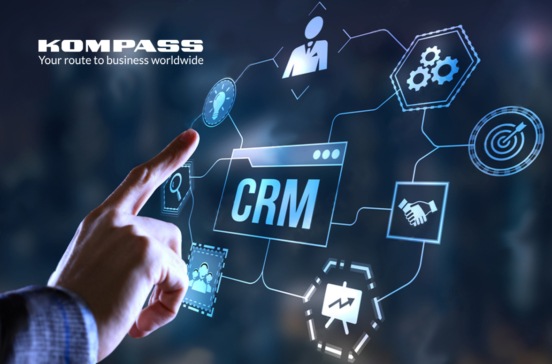1 September 2020
Did you know that messy data costs companies up to 12% of annual revenue?
One instance of messy data is data duplication. Duplicated data can be highly detrimental to organizations. It impacts employee productivity, brand image, customer experience, slows down networks, and spikes storage costs.
And yet, statistics say that in instances where backup policies are stringent, up to 80% of organizations’ corporate data is duplicated.
Fortunately, there is a solution, and it’s called data deduplication.
If you want to reap the benefits of clean data sets, read on as we take a look at what is data duplication and why it’s important.
What is data deduplication?
First up, what is data deduplication? Data deduplication is the practice of eliminating duplicate data sets. It is also known as data dedupe for short.
Duplicate data can be created in numerous ways. One of the most significant is through backups. Regular and strict backups will invariably result in duplicated data sets.
File sharing, inaccurate customer inputs, team entry mistakes, and importing/exporting errors are all opportunities for data duplication.
Data deduplication works to erase these duplicated data sets. It does this by analyzing data blocks and files. Deduplication works on a file- or sub-file level. If only entire files are compared and deduplicated, this is called Single Instance Storage (SIS).
The application of data deduplication and the methods involved typically vary from service to service. However, the end goal is invariably to clean out duplicated data.
Why data deduplication is important
Now that you are familiar with the basics of what data duplication is and how it works, let’s explore its importance.
The business impacts of data are becoming enormous. Clean, usable data can be the make or break factor that separates competitive organizations from those that fall by the wayside.
This alone is one overarching reason by data deduplication is so vital in today’s business environment. Here are some of the specific impacts that duplicated data can have on an organization in which data deduping can reverse.
Duplicate data drains productivity
Research shows that the average employee spends 2.5 hours every day looking for data. This equates to about 30% of the workday.
It doesn’t take much to see that this is an appalling waste of time. If data is not easily accessible to employees, this will impact a company’s bottom line over time. Data duplication makes hard-to-access data even more time consuming to find, because employees may need to check multiple versions of data to ensure that what they have found is accurate and up to date.
In some cases, this can cause employees to begin trying to clean up relevant data sets on their own. Although this might sound like a good thing, manually updating data through spreadsheets and formulas is ineffective and time-consuming.
Data deduplication, on the other hand, can tackle this task more effectively both on an outcome and cost basis.
Duplicate data confuses customers
When sales and marketing teams are accessing duplicated data, this can spill over to the customer experience.
One example of this is if a sales agent requests customers to re-enter data, or bases their interaction with customers on outdated data.
This is highly confusing for clients and inevitably leads to frustration. Not many companies have the time to reiterate their data over and over with their B2B connections.
Duplicate Data Hurts Your Brand Image
Besides frustrating customers and slowing down representatives, duplicate data also hurts the brand image B2B of companies. As mentioned above, when employees are working from duplicated data this will filter through to clients.
End consumers are not tolerant of inconsistencies in customer service, and B2B clients even less so. Chances are a large portion of your B2B clients know how to manage their data effectively. If they see that your organization does not, this might lead them to question the overall quality of your offering.
Data duplication slows down your network
One of the dangers of ongoing data duplication is a network slow down. Duplicated data places high demands on networks and storage applications.
According to survey results, 98% of large businesses (those with 1000+ employees) reported that 1 hour of network downtime equates to losses of more than $100,000.
In most cases, network overloads due to data duplication won’t cause a total network failure. However, reduced speeds will directly impact productivity, and with that, profit.
Duplicate data is expensive to store
Increasing numbers of SMBs are investing funds into CRM systems, thanks to the impacts CRM can have on revenue. However, if data is not correctly managed and deduplicated, this can result in a wasting of these funds.
Duplicated data is expensive to work with, as employees have to waste time sifting over outdated versions. It can also cost organizes dearly in network speed.
However, one of the most blatant costs of duplicated data is the expense of storing it.
The more duplicated data an organization has, the more server space is required to house it. This can drive up data storage costs dramatically.
Combined this with the fact that B2B data decays at an average rate of 70.3% each year—and you have a recipe for high data storage costs for little-to-no return.
Fortunately, deduplication can turn this trend on its head. Not only can it make data more useful for organizations, but it can also make housing it much more cost-effective. In some cases, deduplication can cut down backup storage needs by 80-95%.
Need to clean up your data? Call us
Research shows that data quality best practices are capable of boosting revenue by 66%.
To be able to use corporate data effectively, organizations need to have access to clean data. Data deduplication is an integral component of cleaning data and rendering it a company asset, rather than a liability.
Does your B2B organization need to clean up its data? If so, you have come to the right place.
Here at Kompass, we specialize in assisting B2B businesses achieve success through data analysis.
Feel free to contact us if you have any questions. To get started, take a look at our consulting services and data integration solutions.












Comentarios
No Comments